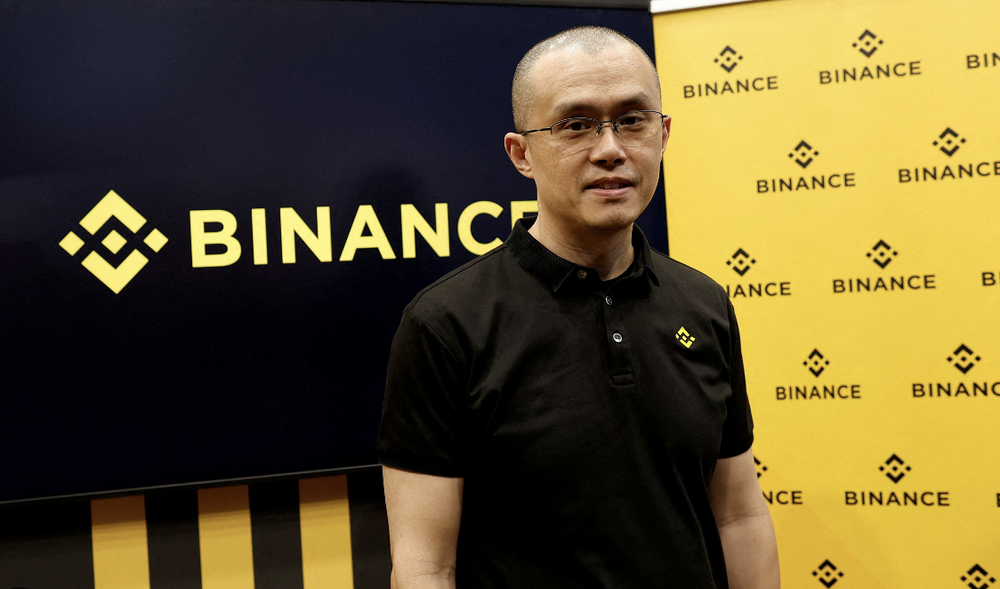Deputy Director of the State Administration of Foreign Exchange explains the cross-border financial blockchain service platform
Source: Economic Reference Network
Reporter: Zhang Mo Beijing reports
The Political Bureau of the CPC Central Committee recently conducted the eighteenth collective study on the status quo and trends of blockchain technology development, and the blockchain has once again become a hot topic for all parties. The reporter learned from the State Administration of Foreign Exchange that after two years of meticulous technical preparations, the foreign exchange bureau has launched the cross-border financial blockchain service platform (hereinafter referred to as the cross-border blockchain platform) on March 22 this year, and took the lead in 7 Pilots of 14 provinces (municipalities) and 14 corporate banks. Recently, the platform has been further extended to 17 provinces (municipalities and autonomous regions), and more than 160 corporate banks have voluntarily joined. As of November 20, the platform has accumulated a total amount of accounts receivable financing loans equivalent to 8.214 billion US dollars (including RMB 6.275 billion), and a total of 1,590 service enterprises, of which small and medium-sized foreign trade enterprises accounted for about 70%. It is understood that cross-border areas The blockchain platform is currently the only blockchain platform for central state agencies to file for filing in the National Internet Information Office.
How does the cross-border blockchain platform use blockchain technology to solve the painful points of cross-border financial financing? What is the current operation? What are the plans for future platform construction? With these questions, the "Economic Information Daily" reporter recently interviewed Zhang Xin, deputy director of the State Administration of Foreign Exchange.
- Part of the speculative platform, the blockchain heat is “revived”, and the regulators successively punched out virtual currency transactions.
- Panic is not yet fermented, keep watching
- Ali, Tencent, Baidu blockchain landing case big PK, who is weak and strong?
Reporter: What is the background and consideration of the introduction of the cross-border blockchain platform by the SAFE?
Zhang Xin: The SAFE attaches great importance to the innovation and application of financial technology, and vigorously promotes the construction of “digital external management” and “safety management”. According to the decision-making and deployment requirements of the Party Central Committee and the State Council on the financial services real economy, starting from 2017, close Track the development of new technologies, promote the innovative application of blockchain in regulatory technology, explore the establishment of a basic platform system for blockchain of foreign exchange business, and cultivate the application chain of foreign exchange business blockchain.
In our supervision work, we found that small and medium-sized foreign trade enterprises are in urgent need of funds in the process of development, but under the traditional trade financing mode, there are certain obstacles to the pledge financing of cross-border accounts receivable of small and medium-sized foreign trade enterprises. Generally speaking, small and medium-sized foreign trade enterprises are small in scale, have small funds, are not standardized in management, and lack credit information. In particular, the creditworthiness of individual enterprises is poor, and the pledge or fraudulent use of pledges has occurred from time to time, making it difficult for banks to identify themselves. Credit information such as pledge certificates provided is often cautious about cross-border financing of small and medium-sized foreign trade enterprises.
In addition, banks also lack effective and convenient channels for verifying the authenticity of pledges. For example, in order to verify the authenticity of important documents, banks often need to go to the enterprise site for verification on a case-by-case basis. In order to prevent repeated financing, the bank will usually compare the financing situation of the enterprise with the foreign exchange administration's receipt and payment, customs import and export volume, and analyze the rationality. However, due to the lack of information sharing in the use of inter-bank pledges, it is difficult for banks to grasp the specific circumstances of enterprises in the industry. Regulators also need to spend more effort to monitor, verify, and check for fraudulent financing transactions.
In view of the difficulties in the financing of these small and medium-sized foreign trade enterprises, on the basis of full investigation, in 2018, the foreign exchange bureau accelerated the research on blockchain technology and actively explored the application scenarios in combination with foreign exchange management practices, exploring the use of blockchain technology in cross-border areas. Establish an information sharing platform to improve financing efficiency. That is to say, the “export receivables financing service” and the “enterprise cross-border credit information authorization verification service” are the entry points to promote the construction of cross-border blockchain platforms with extensive participation of regulatory authorities, banks and enterprises. On March 22, 2019, the cross-border blockchain platform began to be piloted in seven provinces (municipalities) and 14 corporate banks in Beijing. On October 15, the foreign exchange bureau further expanded the pilot to 17 provinces (municipalities, autonomous regions).
Reporter: Please tell us briefly how the cross-border blockchain platform uses blockchain technology.
Zhang Xin: The cross-border blockchain platform belongs to “blockchain+cross-border financial services”, using the underlying technology of the blockchain independently researched and developed by the China Banknote Blockchain Research Institute under the People’s Bank of China, using a licensed alliance chain to whitelist Manage collaboration methods, establish end-to-end trusted information exchange and effective verification between banks and enterprises, and real-time interaction between inter-bank trade financing information, etc., to achieve various information sharing such as fund collection and payment, pledge certificate, financing application, and lending. To optimize the reengineering of financing business processes, to facilitate banks to quickly and accurately handle corporate financing project audits and credit credit verification, and to help solve the financing difficulties of SMEs and the difficulty of bank risk control.
As the initiator, the foreign exchange bureau takes the lead in establishing a coalition chain management mechanism. The newly added nodes need to pass the alliance's access, which can ensure the security, reliability and availability of the blockchain platform. At the same time, through the implementation of all parties data to minimize the chain, the company authorized to query their own business information, the use of national secret algorithms to achieve security, the technical level of risk is generally controllable.
Reporter: How effective is the current cross-border blockchain platform?
Zhang Xin: Since the cross-border blockchain platform has been running, the results have been quite remarkable, and it has been welcomed by banks and enterprises. At present, there are more than 160 corporate banks that voluntarily and independently join the cross-border blockchain platform, accounting for about one-third of all foreign exchange banking banks. As of November 20, the platform has accumulated a total of 8.214 billion US dollars (including RMB 6.275 billion) of loan receivables, and a total of 1,590 service enterprises, of which small and medium-sized foreign trade companies accounted for about 70%.
From a business perspective, the platform helps to alleviate the difficulty of cross-border financing for small and medium-sized foreign trade enterprises. The cross-border blockchain platform reduces the heavy work of printing paper materials and manual submissions, simplifies the complicated process of bank manual verification and on-site verification, greatly shortens the financing application cycle, and effectively reduces the financial cost of the enterprise, end-to-end The information verification mechanism has improved the success rate of corporate finance. Since the pilot of the cross-border blockchain platform, among the service enterprises, small and medium-sized foreign trade enterprises accounted for more than 70%. In the Zhangzhou area of Fujian, which has a large number of small and medium-sized enterprises and private enterprises, small and medium-sized foreign trade enterprises account for 95% of the financing through this platform.
From the perspective of the bank, the platform effectively reduced the risk of bank financing business, significantly improved the efficiency of bank financing business processing, and enhanced the willingness to handle bank financing business. On the one hand, the pledge information provided by the cross-border blockchain platform is authentic and reliable. On the other hand, the real-time interaction and effective verification of inter-bank financing information helps to curb the risk of repeated financing in a timely manner.
From the perspective of supervision, the platform adheres to the management concept of supervision and supervision, and further strengthens the post-event supervision methods. Through the embedding of business and regulatory rules on the cross-border blockchain platform, the financing business process was reengineered. The foreign exchange bureau can see the real information of all aspects of the financing business handled by banks and enterprises, timely discover the abnormalities in the transaction process, achieve the cross-border financial service objectives, and reflect the authenticity regulatory requirements, and realize the organic unification of “regulation as a service”. .
Reporter: In terms of promoting the construction of cross-border financial blockchain service platform, what measures will the foreign exchange bureau take next?
Zhang Xin: General Secretary of the CPC Central Committee Xi Jinping pointed out that it is necessary to seize the opportunity of blockchain technology integration, function expansion and industry segmentation, and play a role in the blockchain to promote data sharing, optimize business processes, reduce operating costs, enhance synergy efficiency, and build The role of the credible system and so on. It is necessary to promote the deep integration of the blockchain and the real economy, and solve the problems of difficulty in financing loans for SMEs, difficulties in controlling the risks of banks, and difficulties in departmental supervision. This points the way to the next step in our work and provides a fundamental follow-up. We will conscientiously study and implement the spirit of General Secretary Xi Jinping's important speech, adhere to the principle of "stable development, standardized management, safety and control", adhere to the overall idea of "national chess game" in the field of foreign exchange management, and continue to broaden the participation of cross-border blockchain platform participants. Expand the data resources involved in cross-border trade finance, promote the application scenarios of payment financing facilitation, and gradually form a cross-border credit service system.
Specifically, we will study the construction of new scenarios for cross-border blockchain platforms in the following four areas. The first is to promote the electronic application of taxation of service trade and improve the level of cross-border payment facilitation of service trade. The second is to introduce relevant documents for capital use of capital projects, conduct cross-checking on the authenticity and compliance of the payment business of banks and enterprises, effectively prevent the risk of capital project income from facilitating business operations, and support the facilitation reform of capital project income payment. The third is to study and promote the application of trade finance services at the import end to further promote the healthy development of trade finance. Fourth, it is based on supporting the construction of new land and sea passages in the west, promoting information access to local logistics platforms, enriching logistics information of trade enterprises, and facilitating cross-border settlement and financing of trade enterprises.
We will continue to update Blocking; if you have any questions or suggestions, please contact us!
Was this article helpful?
93 out of 132 found this helpful
Related articles
- People's Court Report: Cracking down on "blockchain" pyramid schemes and technology are indispensable
- DeFi Series | Lending, Spot and Margin Trading: The Syllogism of Decentralized Finance (I)
- The Bitcoin code will be added to the GitHub Millennium Code Preservation Program, which will be buried in the Arctic underground for 1000 years without damage.
- DeFi Series | Lending, Spot and Margin Trading: The Syllogism of Decentralized Finance (中)
- Opinion: Why is it that “blockchain is not bitcoin”? In the 1800s, “the steam engine is not a railway”?
- The new chairman of the CFTC issued a statement: We do not want to kill cryptocurrency innovation
- No fear of bitcoin falling, these figures indicate that the miners did not give up






